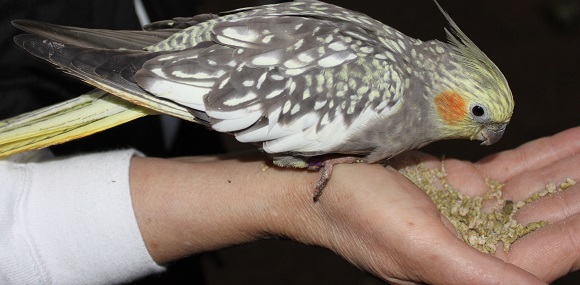Understanding Cockatiel Lifespan
Cockatiels are delightful little companions, known for stealing hearts with their charming personalities and their love for socializing. So, let’s get to know what helps these feathered friends live long and happy lives.
Factors Influencing Lifespan
If you treat your cockatiel right, they can accompany you for around 15 to 20 years, with some even making it past 25. Wild ones, though, have a tougher time out there, usually sticking around for a decade or so. Here’s what makes the difference:
| Lifespan | Environment |
|---|---|
| 10–15 years | Wild |
| 15–20+ years | Captivity |
What affects how long they stick around? A few things just like:
- Genetics: It’s all in the genes. Some birdies are just built to last longer.
- Diet: Watch what they eat. A balanced diet packed with all the good stuff is a game-changer.
- Environment: Keep their home spotlessly clean and filled with fun. It’s got to be safe, too.
- Vet Visits: Routine check-ups catch any sneaky problems before they become serious.
Enhancing Lifespan for Cockatiels
Want your cockatiel to stick around for the long haul? Here’s the scoop:
-
Balanced Diet: Keep their menu as colorful as their personalities. Need ideas? We’ve got all the info on if they can munch on stuff like blueberries and tomatoes.
-
Spiffy Environment: Make sure their crib is tidy, roomy, and packed with cool stuff like toys and perches to keep them entertained.
-
Buddy System: These birds are social butterflies. They can get bummed out if they feel ignored. Don’t let them get lonely—check our handling loneliness section for tips.
-
Vet Visits: Keep those feathers fluffy and that beak glossy with regular vet visits. Spot issues like eye infections or diarrhea early on.
-
Safety First: Their home needs to be a fortress against dangers. Our room temperature guide gives you the lowdown on creating the perfect cockatiel haven.
Follow these nifty tips, and your cockatiel will enjoy a long, healthy, and chill life in your flock.
Looking for more on cockatiel care? Peek at our guides on are cockatiels good pets and cockatiel growth stages for the full scoop.
Cockatiel Health and Well-being
Loving your cockatiel means staying sharp about what might ail them. Let’s chat about some health hiccups they face and how you can help them flutter through life with ease.
Common Health Issues
Just like us, cockatiels can catch a few bugs here and there. A handful of these issues pop up more than others, like respiratory infections, psittacosis, fatty liver disease, aspergillosis, and egg binding (BirdSupplies.com).
| Health Issue | What It Looks Like |
|---|---|
| Respiratory Infections | Think labored breathing, sneezing fits, and snotty beaks. |
| Psittacosis | This nasty bug can leave both birds and humans feeling fluish. |
| Fatty Liver Disease | Comes from munching on the wrong stuff, resulting in a chunky liver. |
| Aspergillosis | A pesky fungus that can mess with their breathing. |
| Egg Binding | Female birds get stuck with an egg that won’t budge and need urgent vet help. |
Preventing Health Problems
Dodging these pesky health issues is simpler than you’d think—a good diet, comfy digs, and a regular vet visit or two should do the trick.
-
Balanced Diet: Mix in some pellets with fresh veggies to skip nutrition pitfalls and keep fatty liver at bay (BirdSupplies.com). Curious about their faves? Wander over to our guide on cockatiel favourite food.
-
Calcium-Rich Foods: Female cockatiels need their calcium to avoid the whole egg-holding scenario. Make sure they’re munching the right stuff.
-
Chill Zone: Keeping drama at bay is important. Calm surroundings and loads of playtime keep stress from wreaking havoc. Get cozy with our tips on maintaining the perfect cockatiel room temperature.
-
See the Vet: Think of the vet as a cockatiel fortune teller. Regular visits catch sneaky problems early on; urgent care for things like egg binding is a vet’s jam.
-
Sparkling Clean Home: A tidy cage means a happy bird. Staying on top of cleaning defends against bugs and squabbles. More on this in our articles about dietary requirements and optimal living environment.
Knowing what makes a cockatiel tick and taking steps to dodge these bumps helps your feathered buddy live their best life. Curious for more? Check out details on cockatiel dying symptoms and cockatiel eye infection.
Cockatiel Socialization
Importance of Social Interaction
Cockatiels are like those chatty friends you just can’t get enough of—thrive on the good company! They absolutely love interacting with their human pals or birdie buddies. Having the right social interactions often brings a big boost to their mood, mind, and health. (Quora).
If these feathered friends don’t get enough hang time, they might start feeling blue, which could cause health hiccups. Hanging out with your cockatiel every day can help keep them happy and active. Whether you’re having a heart-to-heart, letting them flutter around the room, or teaching them entertaining tricks, it’s vital to keep them engaged.
Handling Loneliness
Cockatiels don’t do well with the lone ranger lifestyle. Being on their todd for too long can make them feel lonely. To stop them from missing out, put some time aside each day to bond with them. If your schedule’s packed, think about getting a feathered buddy for your cockatiel, as suggested by The Spruce Pets.
| Fun Activities | How Often? |
|---|---|
| Chat with them | Every day |
| Have a play session | Every day |
| Teach them something new | Every week |
| Give them a bath or spritz | Every week |
Keep them curious with a toy-filled playground. Switch up their toys occasionally, to keep life exciting.
Creating a reliable routine is key—a bit like putting out their favorite seed at the same time every day. These birds are routine lovers so disruptions can ruffle their feathers and make them anxious.
To get a handle on how your cockatiel’s home environment affects their health, take a peek at our article on cozy cockatiel comforts.
By soaking in why social time matters and taking loneliness seriously, cockatiel caretakers can ensure that these birds are living the good life. Giving them the care they need, along with a happy home life, is the ultimate goal. For more pearls of wisdom on keeping cockatiels in tip-top shape, dive into our guide on cockatiel health secrets.
Cockatiel Care and Environment
Giving your cockatiel the right mix of care and surroundings is what keeps these little feathered friends happy and healthy. Who doesn’t want to give their pet the ultimate birdie lifestyle? Let’s get into the nitty-gritty of good food and comfy spaces for these chatty creatures.
Dietary Requirements
Just like us, cockatiels need a balanced meal plan to stay chipper. They’re not just seed-munchers; they require a smorgasbord of goodies to thrive.
Main Diet
- Seeds: Hunt down a special mix designed with cockatiels in mind.
- Pellets: Think of these as the bird equivalent of a well-balanced dinner; they should fill up about 60–70% of your cockatiel’s plate.
Fresh Foods
- Vegetables: Dish out some leafy greens—spinach and kale are a good start—chop up carrots too (carrots for cockatiels?).
- Fruits: Let them nibble on berries like blueberries (blueberries for cockatiels?), apples, and melons.
Protein Sources
- Boiled Eggs: A protein-packed treat to share now and then.
- Cooked Legumes: Toss in some beans and lentils for variety.
Foods to Avoid
- Avocado: This green treat is toxic for them, so skip it.
- Chocolate: Loaded with theobromine—avoid at all costs.
- Caffeine: Keep all coffee and tea away from their beaks.
Need more chow tips? Check out our insights on cockatiel favorite snacks.
Optimal Living Environment
Your pet’s pad should be both a sanctuary and a playground. Here’s how you set that up.
Cage Specifications
- Size: Go big or go home—your feathered friend needs a cage at least 20x20x20 inches.
- Bar Spacing: Keep those bars no more than 1/2 inch apart to steer clear of mishaps.
Perches and Toys
- Perches: Mix it up with perches of different shapes and feels.
- Toys: Keep ’em busy with fun and engaging toys; bored bird is a mischievous bird.
Environmental Factors
- Temperature: Keep things chill between 65-75°F.
- Lighting: Mimic a natural day-night cycle—flip the lights on and off like nature intended.
- Cleanliness: Keep their space clean as a whistle to ward off any nasty bugs or germs.
For the full scoop on setting up their space, peek at our guide on everything cockatiel wings.
Social Interaction
Cockatiels love a good tweet-chat! Socializing keeps them from feeling the blues. So make time to chill with your bird—consider a buddy bird if that suits your flock.
Doing right by your cockatiel means they’ll be sticking around for the long haul. For the deep dive into their health and happiness, roll through our guides: cockatiel health hiccups, do cockatiels nip?, and why cockatiels rock.

